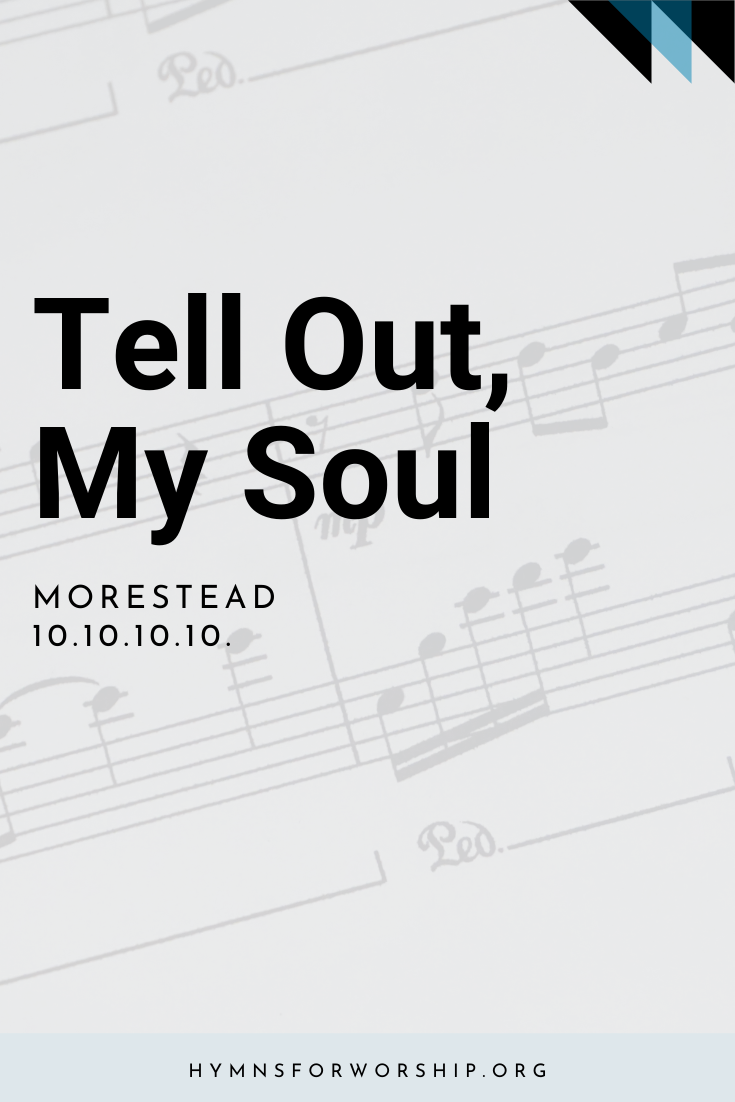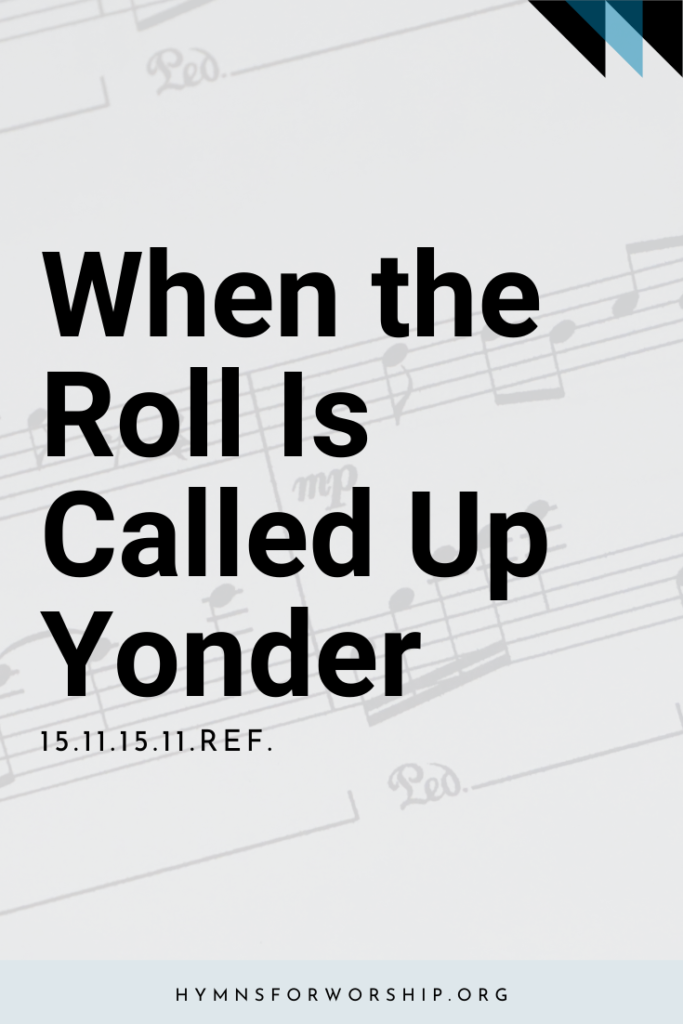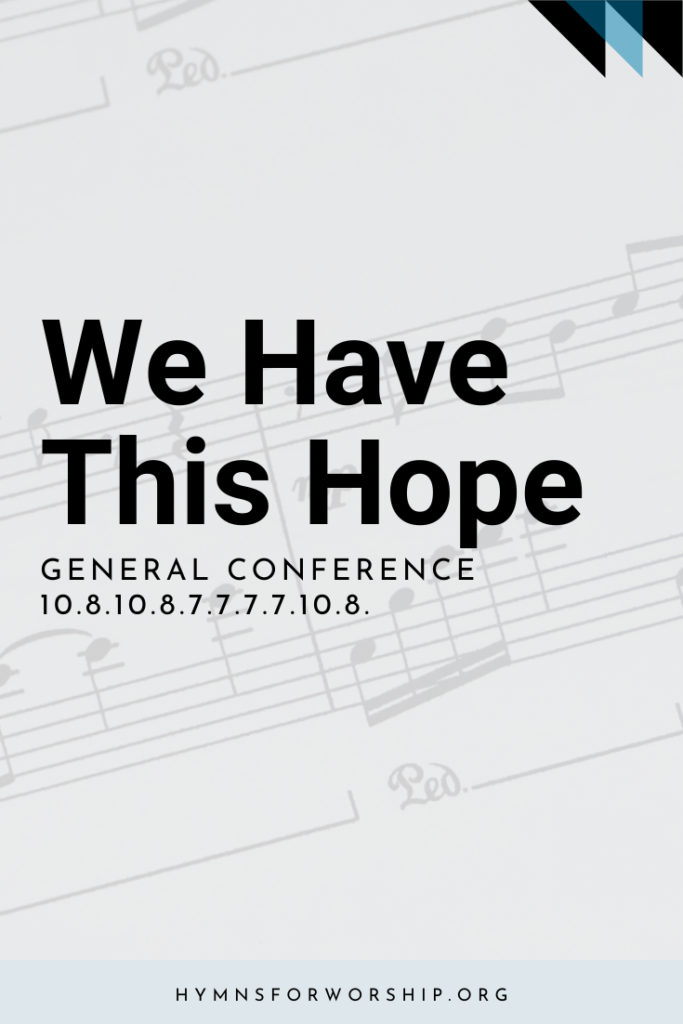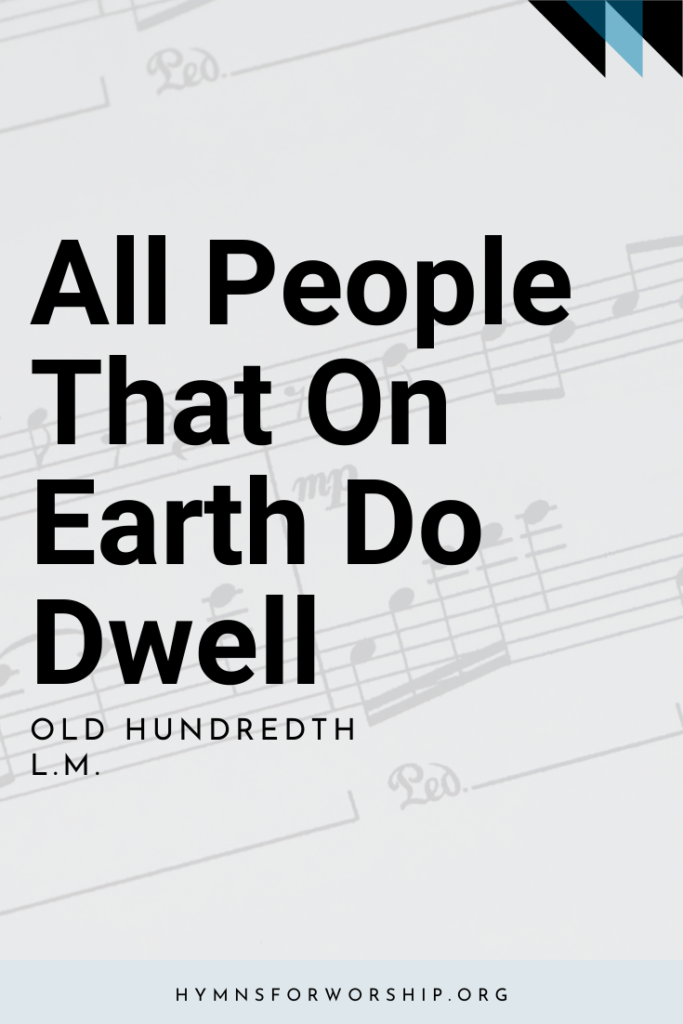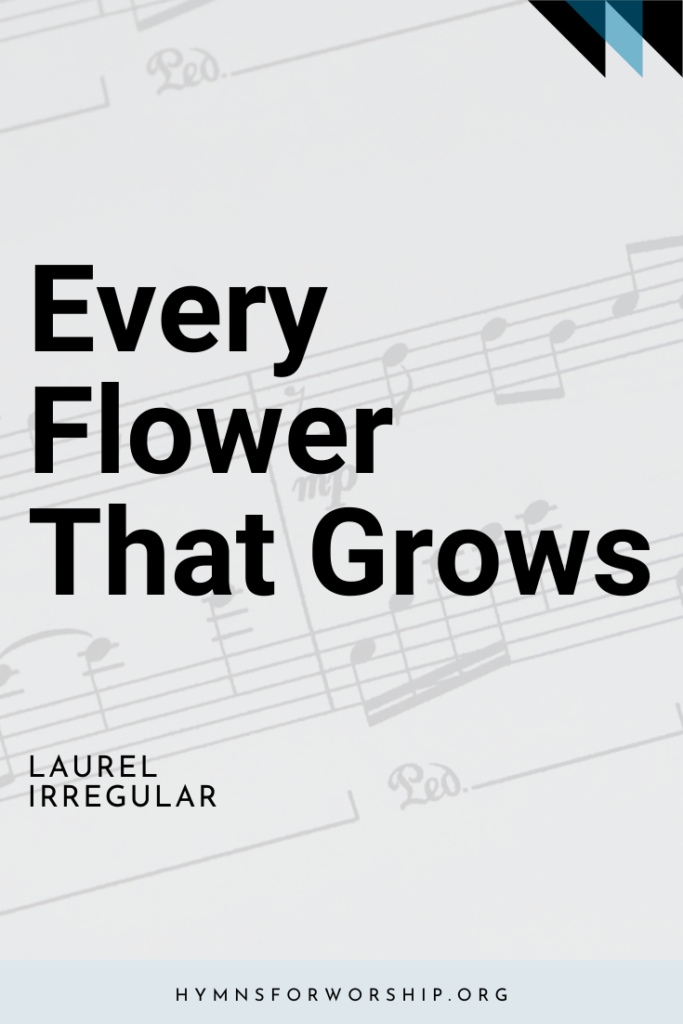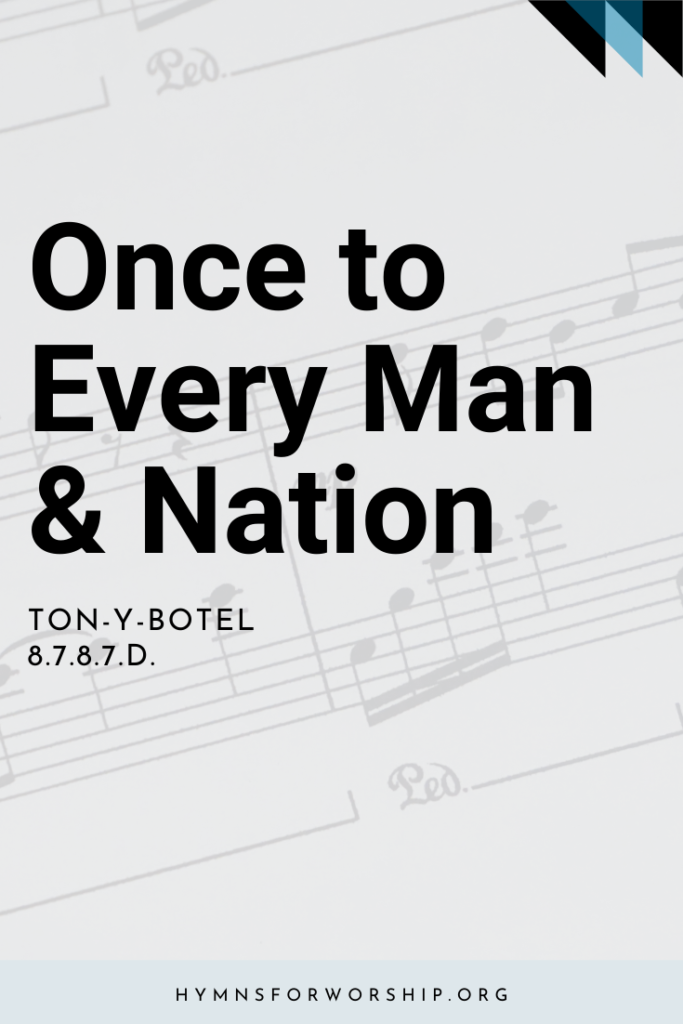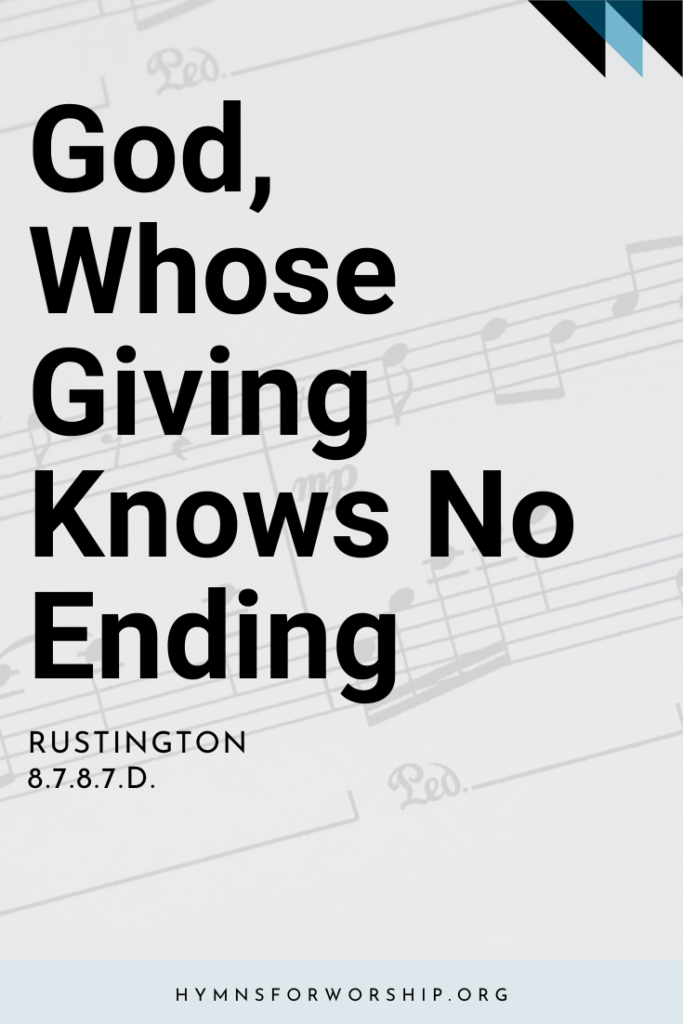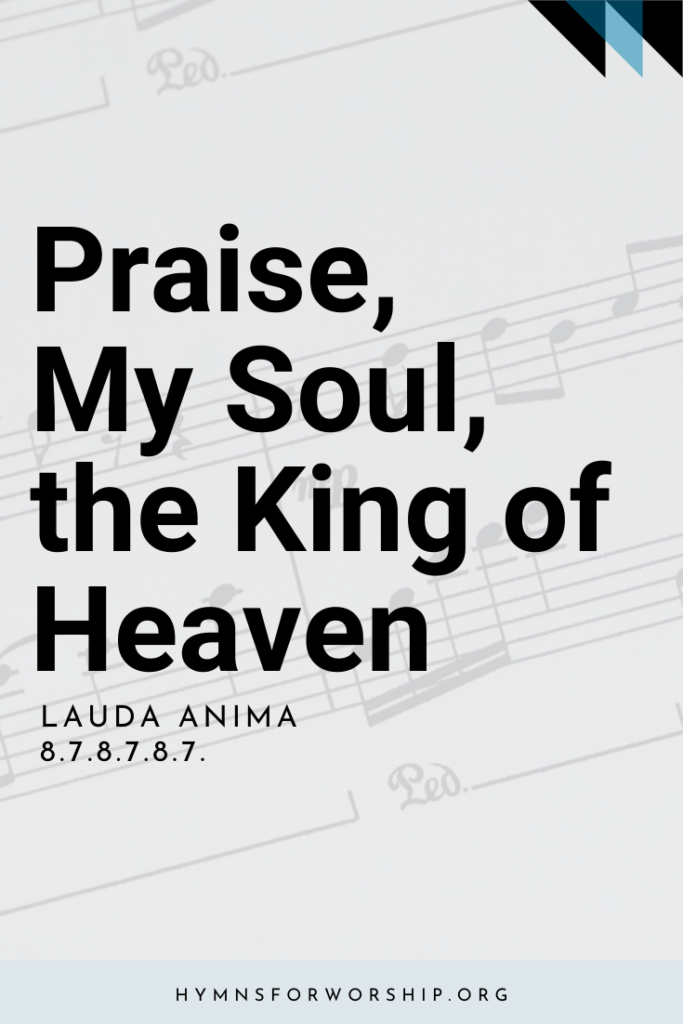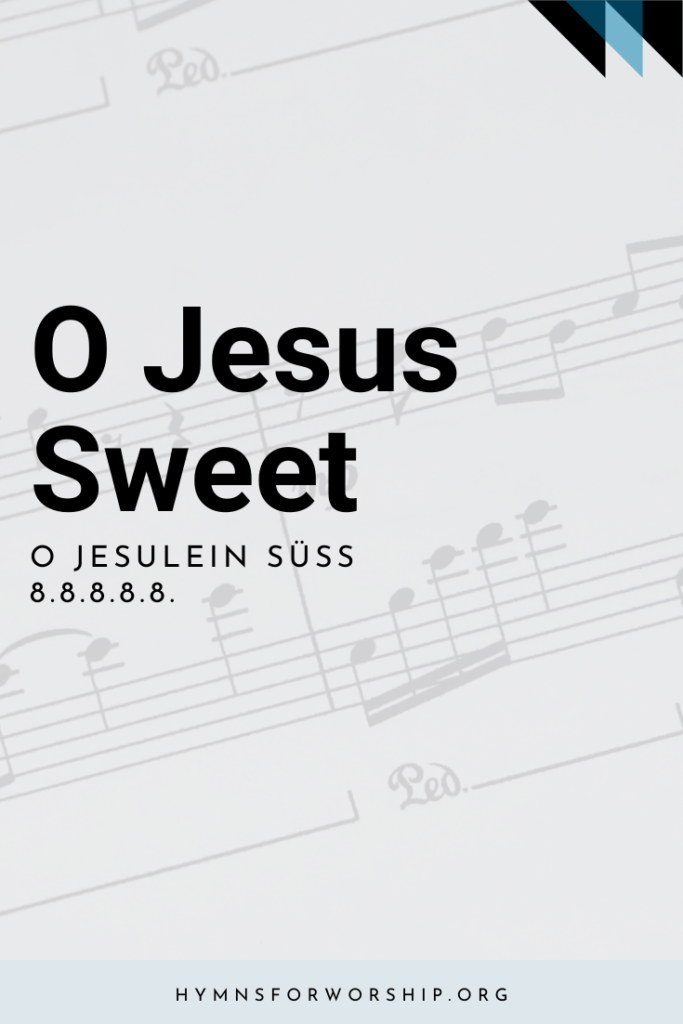WORSHIP >> Adoration & Praise
SDAH 31
Tell out my soul, the greatness of the Lord:
Unnumbered blessings, give my spirit voice;
Tender to me the promise of His Word;
In God my Saviour shall my heart rejoice.
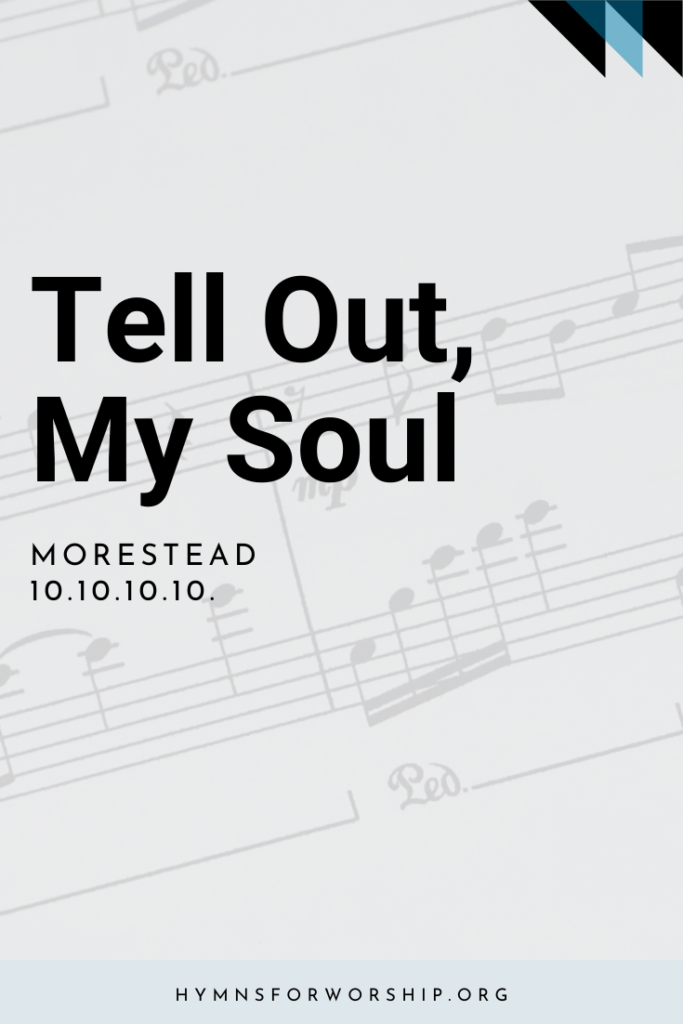

Text
1
Tell out my soul, the greatness of the Lord:
Unnumbered blessings, give my spirit voice;
Tender to me the promise of His Word;
In God my Saviour shall my heart rejoice.
2
Tell out, my soul, the greatness of His name:
Make known His might, the deeds His arm has done;
His mercy sure, from age to age the same;
His holy name, the Lord, the Mighty One.
3
Tell out, my soul, the greatness of His might:
Pow’rs and dominions lay their glory by;
Proud hearts and stubborn wills are put to flight,
The hungry fed, the humble lifted high.
4
Tell out, my soul, the glories of His word:
Firm is His promise, and His mercy sure.
Tell out, my soul, the greatness of the Lord
To children’s children and forevermore.

Hymn Info
Biblical Reference
Luke 1:46-55
Author
Timothy Dudley-Smith (1926-)
Year Published
1961
Performance Suggestions
Unison
Copyright
Words copyright 1962 by Hope Publishing Co., Carol Stream, IL 60188. All right reserved. Used by permission. Music copyright by Sydney Watson
Hymn Tune
MORESTEAD
Metrical Number
10.10.10.10.
Composer
Sydney Watson (1903-1991)
Theme
ADORATION AND PRAISE
Hymn Score
Piano Accompaniment
Notes
Get to know the hymns a little deeper with the SDA Hymnal Companion. Use our song leader’s notes to engage your congregation in singing with understanding. Even better, involve kids in learning this hymn with our homeschooling materials.
As a result of Daniel’s loyalty to God, the angel of the Lord closed the mouths of the hungry lions. Daniel was protected and vindicated before the king and those who sought to take his life. The experience of that most remarkable Hebrew exile stands as a token of God’s ultimate vindication of His people throughout the ages as they are opposed and persecuted by the powers of evil. (Lesson 7, 1st Quarter 2020 – Thursday, Vindication, 2/13/2020)
Timothy Dudley-Smith (1926- ; see Biographies) wrote this in 1961 at Vanbrugh Park, Blackheath, England, the first home of his married life. He had just read the first line of “The Song of Mary” (The Magnificat) from a review copy of the New English Bible he had received. It is actually a paraphrase of Luke 1:46-55, where Mary gives praise to God for choosing her to be the mother of the Messiah. In the first 20 years after he wrote it, the hymn found its way into some 40 hymnbooks and collections, becoming by far his most successful. WOODLANDS, by Walter Greatorex, is the most often used tune in these books.
MORESTEAD was composed for the text “Lift Up Your Hearts” in Hymns for Church and School, 1964. Many composers named tunes after a place or person that evoked pleasant memories. In this case, Sydney Watson named his piece after a village through which he used to ride a bicycle on his way to Winchester in the lovely county of Hampshire, England.
Watson was born September 3, 1903, in Denton, Lancashire, England, and educated at Warwick School, the Royal College of Music, and Keble College, Oxford, where he was an organ scholar. The positions he held were music master at Stowe School; precentor of Radley School; organist of New College, Oxford; conductor of Oxford Harmonic Society and Oxford Orchestral Society; master of music at Winchester College; precentor and director of music at Eton College; and organist for the Sheldonian Theater. From 1955 until his retirement in 1970 he served as organist at Christ Church Cathedral, Oxford, and conductor of the Oxford Bach Choir and the Oxford Orchestral Society. From his home at Aynho he has served as an examiner for the Associated Board of the Royal School of Music. He holds the D.Mus. From Oxford and is a Fellow of the Royal College of Organist.
This tune begins with a grand sweep upward on the four notes of the tonic chord and continues in a most engaging way. First time users of this hymn will need a little warning that the second and third lines begin with a rest. See also SDAH 635, where MORESTEAD is used again with “Lord of All Good.”

